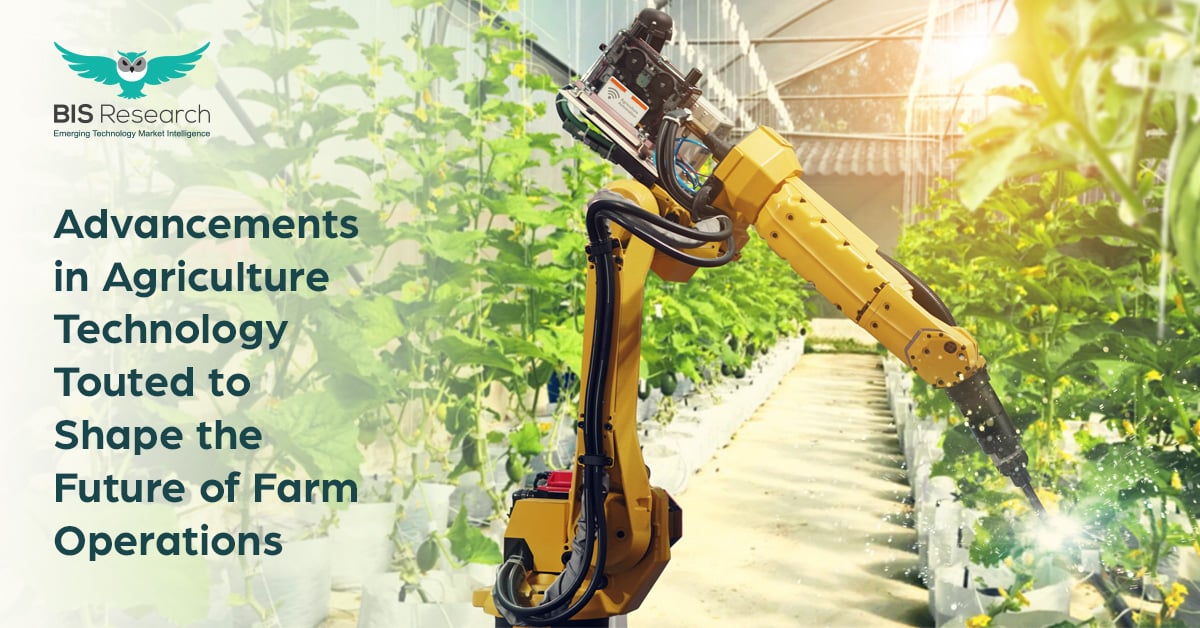Agri-Tech Innovations For Efficient Farming Practices

Advancements in Agriculture Technology Touted to Shape the Future of
Technology has permeated every aspect of our lives, and the agricultural sector is no exception. Over the years, advancements in agriculture technology have played a pivotal role in shaping the future of the industry. From precision farming to automated machinery, these technological innovations have revolutionized the way farmers operate and have the potential to address numerous challenges faced by the sector.
One of the key areas where technology has made significant progress is in precision farming. Precision farming involves using modern tools such as sensors, GPS, drones, and data analytics to tailor farming practices to specific locations or even individual plants. This approach enables farmers to optimize the use of resources such as water, fertilizers, and pesticides, leading to improved efficiency and sustainability.
For instance, farmers can use soil sensors to monitor moisture levels and nutrient content in real-time. This data can help them determine the precise amount of water and fertilizer needed for each crop, resulting in reduced waste and increased yields. Similarly, drones equipped with thermal imaging cameras can help identify areas of crops that require attention, such as pest infestations or water stress, allowing for targeted interventions.
In addition to precision farming, robotics and automation have also made significant contributions to agriculture. Automated machinery, such as robotic harvesters and weeders, help reduce labor-intensive tasks and improve productivity. These machines can work tirelessly, day and night, performing repetitive tasks with precision and accuracy.
Robotic harvesters, for example, can pick fruits and vegetables at optimal ripeness, minimizing waste and preserving crop quality. Similarly, automated weeders can precisely detect and remove unwanted plants, reducing the need for chemical herbicides and promoting healthier crop growth.
As technology continues to evolve, the integration of artificial intelligence (AI) and machine learning (ML) into agricultural practices holds immense promise. AI algorithms can process vast amounts of data, enabling farmers to make data-driven decisions and predictions. Machine learning algorithms can analyze historical agricultural data to identify patterns and trends, empowering farmers to optimize their operations.
What is particularly exciting about AI and ML in agriculture is their potential to mitigate the impact of climate change. By leveraging historical climate data and predictive models, AI algorithms can help farmers anticipate weather patterns and adjust their practices accordingly. This can help minimize crop losses caused by extreme weather conditions such as droughts, floods, or frost.
Ideas For harnessing the power of technology in agriculture are abundant. For example, the use of smart sensors in livestock farming can enable remote monitoring of animal health and behavior, allowing farmers to detect early signs of illness or distress. This can help improve animal welfare and reduce the use of antibiotics by enabling targeted interventions.
Furthermore, adopting blockchain technology in the agricultural supply chain can enhance transparency and traceability. With blockchain, every step of the supply chain can be recorded in a secure and immutable manner, reducing the risk of fraud and ensuring the authenticity of product claims. Consumers can have complete visibility into the origin, quality, and production methods of the food they consume.
Recommendation For policymakers and industry stakeholders is to prioritize investments in research and development to foster the adoption of innovative agricultural technologies. Providing financial incentives, training opportunities, and regulatory support can facilitate the integration of technology into farming practices. Collaboration between government agencies, research institutions, and private sector organizations is crucial to drive innovation and ensure the wide-scale implementation of these technologies.
Listicle of key technological advancements in agriculture:
- Precision farming with GPS guidance systems.
- Automated machinery and robotics for increased efficiency.
- AI and ML algorithms for data-driven decision making.
- Smart sensors for remote monitoring of livestock health.
- Drone technology for aerial crop monitoring.
- Blockchain for enhanced transparency in the agricultural supply chain.
- Nanotechnology for improved crop protection and nutrient delivery.
- Vertical farming for resource-efficient urban agriculture.
- Biotechnology for genetically modified crops with enhanced traits.
- Hydroponics and aquaponics for sustainable soilless cultivation.
Question & Answer:
Q: How can technology help address the labor shortage in agriculture?
A: Automated machinery and robotics can reduce the reliance on human labor by performing tasks like harvesting, weeding, and planting. This can help alleviate the labor shortage and improve productivity.
Q: Can precision farming practices be adopted by small-scale farmers?
A: Yes, precision farming practices can be scaled down and tailored to meet the specific needs of small-scale farmers. The use of cost-effective technologies like smartphone apps and low-cost sensors makes precision farming accessible to a wider range of farmers.
Summary of the Current Landscape:
Advancements in agriculture technology have the potential to shape the future of the industry. From precision farming to robotics and automation, these technologies offer solutions to challenges such as resource optimization, labor shortage, climate change, and transparency. Integrating AI, ML, blockchain, and other emerging technologies into farming practices can pave the way towards a more sustainable, efficient, and resilient agricultural sector.
In conclusion, embracing technology in agriculture is not merely an option but a necessity. The continued development and adoption of innovative solutions are crucial for ensuring food security, environmental sustainability, and economic prosperity. As we move forward, it is imperative for policymakers, industry stakeholders, and farmers to collaborate and drive the widespread implementation of these technologies, thereby shaping a brighter and more productive future for agriculture.
Post a Comment for "Agri-Tech Innovations For Efficient Farming Practices"